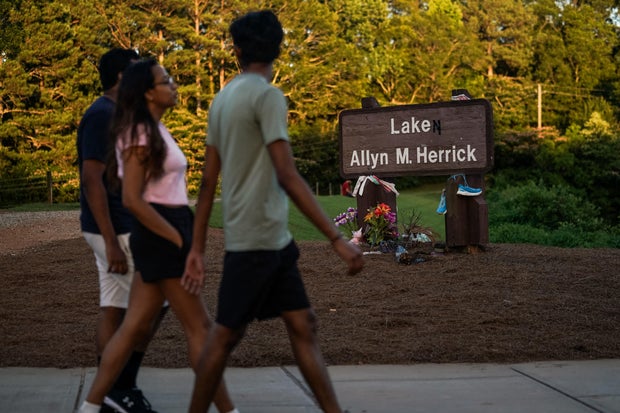Just two blocks from the University of Georgia campus, in a downtown courtroom in Athens, Georgia, Jose Ibarra is on trial for the murder of 22-year-old Laken Riley, a former UGA student who transferred to the nursing program at Augusta University’s Athens campus.
In late February, Riley was attacked during her morning jog on a trail near the University of Georgia’s intramural fields. As the investigation and trial unfolded, members of the Athens community grappled with a shaken sense of security.
“Just because we’re on campus doesn’t mean, necessarily, that the bad parts of the world can’t get in,” said Allison Mawn, a fourth-year student. “She did everything right. She told friends where she was going, she went on a popular trail during the day. She had her tracking location on. She even managed to call for help, and still it wasn’t enough.”
The case was thrust into the national spotlight when authorities arrested Ibarra, an undocumented Venezuelan immigrant who entered the country two years ago, and charged him with murdering Riley. In the midst of the election cycle, her death quickly became a flashpoint in the immigration debate, with former President Donald Trump and his supporters raising it at rallies and President Biden responding to heckling about it in his State of the Union address.
“In an instant, all the eyes across the country are on us,” said Mawn. “Now you can’t say the name Laken Riley without thinking about undocumented immigrants and illegal immigration.”
ELIJAH NOUVELAGE/AFP via Getty Images
Students have organized vigils and prayer groups, and participated in protests, rallies and runs in memory of Riley. A GoFundMe set up by her family amassed over $250,000 in donations that will go to the Laken Hope Foundation, an organization that will “promote safety awareness for women, aid and tuition assistance for nursing students, and children’s healthcare… all causes that Laken felt strongly about.”
For many students, Athens no longer feels like the safe haven they once thought it was. To ease fears, University of Georgia President Jere Morehead announced a $7.3 million campus safety initiative. The campus has been fortified by an expanded university police force, hundreds of additional lights and security cameras and multiple emergency call stations and license plate readers.
ELIJAH NOUVELAGE/AFP via Getty Images
Over the past months, “there was an expectation that we would magnify those efforts,” said P. Daniel Silk, the University of Georgia’s associate vice president for public safety. “We want to be more safe and more secure tomorrow than we were yesterday.”
While the Athens community waits for justice to be delivered, students bustle around campus, walking under the newly installed street lights, passing by additional emergency call systems and easing into a heightened security presence. Classes may go on, but the campus and community are changed.
“Regardless of what the verdict is, unfortunately we still lost a student. We still lost a life and nothing’s gonna change that,” said Mawn. “Things are never going to be a hundred percent the same for any of us here.”



